Top 7 Reasons to Naturally Increase Testosterone levels
A host of human hormone research studies have demonstrated that, in order to improve health and naturally increase testosterone levels, it must go hand-in-hand.The hard part of sifting through all of that complex research is that it’s often difficult to tell the cart from the horse. Health and Testosterone are so closely linked in men that it’s hard to see when low T causes poor health, or when poor health causes low T.Do we become healthier when we naturally increase testosterone levels, or by making positive lifestyle changes, do our bodies naturally increase testosterone levels? One thing that is clear, though, is that by taking manageable steps to naturally increase your testosterone, you’re putting yourself into a Win/Win situation. These lifestyle choices are just good health advice, and they also increase your T. We have also seen a scientific study of 83,000 US veterans over a 15 year period assessing the benefits of Testosterone Therapy.This study showed that US veterans with low testosterone, supplemented under Physician guidance back to normal levels have lower incidence of heart attack, stroke, prostate cancer and mortality.Here are our Top Seven reasons to naturally increase testosterone levels that will undoubtedly make you a much happier and healthier Man (increasing testosterone does help with all of the symptoms and issues caused by Low T.Increase Muscle Mass and Overall Strength
There is no doubt that an increase in testosterone will positively impact your entire muscular system by increasing crucial muscle protein synthesis that contributes directly to muscular growth. An upgrade for your muscular system, at any and every age, will naturally lead to a healthier, more confident and capable you.Increase Overall Heart Health
The heart is the single most important muscle in your body. An increase in testosterone will not, by itself, lead to the prevention of cardiovascular disease, but the direct benefits derived from naturally increasing your Testosterone level will lead directly to more sustainable cardiovascular health if your physician monitors and manages the patients red blood cell count and hematocrit levels.Decrease Your Body Fat Percentage
Every medical study has proven that men suffering from obesity have a consistently lower-than-average testosterone level (and coinciding above-average estrogen levels) and there are clear reasons for this. When our testosterone levels decrease, insulin and glucose regulation decreases accordingly as the body’s natural ability to metabolize fat also declines. Testosterone levels play a crucial role in the body’s insulin and glucose regulation as well as the body’s ability to metabolize fat.Fortify Your Skeletal System
As we age, men can suffer from the debilitating effects of osteoporosis but testosterone is an often overlooked health ingredient that plays a significant factor in overall bone density and strength. Testosterone is a key component in effective bone mineralization and resorption, increasingly important as we age and our bones tend to lose a degree of density.Reignite the Libido
The hard fact is that the primary function of testosterone is as a vital reproductive hormone. It returns desire as well as sexual function.Cognitive Ability
Testosterone helps regulate cortisone, which is a stress hormone, and affects the efficiency of our brain’s neurotransmitters. When men suffer from decreased testosterone levels they lose some ability to effectively regulate cortisol levels, which can cause neurotransmitters malfunction and lapses in memory.Delay, Decrease or Offset Effects of Alzheimer’s
Alzheimer’s and dementia are most frequent in 65+ men often caused by Andropause. In addition, a healthy testosterone level is a distinct competitive advantage in the game that we call “life”. Feel the way you used to feel and improve your drive, confidence, energy, look, outlook, sexual interest and function while living a healthier life.Hormone Therapeutics Physician Guided Testosterone Replacement Therapy
These are all improvements you can achieve through natural means. Natural means will increase testosterone levels, however, they will not always optimize your levels to where you feel the way you used to feel for reasons including hypogonadism, aging, health conditions and more. These are great healthy ways to live your life, however, the expert Hormone and Testosterone physicians at Hormone Therapeutics can put you on a proper Testosterone and Hormone Replacement Therapy program.Hormone Therapeutics will assess your symptoms and complete medical history. We will schedule your complete blood tests. We will interview you and then develop a program specifically for you. We will give you another blood test at the 6-8 week mark of treatment and also a 24 point self-evaluation of the progress against the symptoms of low testosterone.After further blood testing and evaluation of your progress we can adjust your treatment as needed. The treatment could include supplemental testosterone, HCG to encourage your system to naturally produce more testosterone, estrogen blockers to manage your Estradiol : Total Testosterone ratio and optimize hormone balance. There are also many other factors and tests we can assess and other treatments we can consider depending on your unique situation.Always start with a natural approach to optimizing your health. Good clean living, a healthy diet, exercise and sleep patterns will go a long way to giving you the life and health you desire. Our Physicians are here to help you.OPTIMIZE YOUR HEALTH!
Hormone Therapeutics will help you increase testosterone levels the natural way, working with you and getting you back to feeling how you remember feeling went you felt great! Contact us for a free evaluation.Top 7 Reasons to Naturally Increase Testosterone levels
Hormone Therapeutics April 13th, 2023
Posted In: Low T Info
Tags: benefits of TRT, clean, Cognitive Ability, Decrease or Offset Effects of Alzheimer’s, Decrease Your Body Fat Percentage, Delay, diet, estradiol, Fortify Your Skeletal System, free testosterone, HCG, health, healthy, Increase Muscle Mass and Overall Strength, Increase Overall Heart Health, increase testosterone levels, life, longer, low t, natural, optimize, physician, Reignite the Libido, testosterone, Testosterone replacement therapy, Total Testosterone
Wondering About Low T? Here are the Low Testosterone Symptoms You Should Know
Do you keep noticing commercials about Low Testosterone symptoms, or Low T, and wonder what exactly they are talking about? Are you wondering if you have Low T? We have yet to meet anyone nearing 40, or older, who sees these commercials and can consistently say I never feel like that with the same pep I did when I was younger.For healthy men, testosterone peaks at age 19 and goes down about 1-2% a year for the rest of your life. We are living 64% longer today than we were just one century ago and different parts of our body age faster than other. An unbalanced or depleted endocrine system has so many men are suffering from the symptoms of Low Testosterone. . . but they don’t have to suffer from what so many people just write-off as normal aging.What is Testosterone?
Testosterone is a naturally occurring and very potent hormone produced in large amounts by all males (and in much smaller amounts in females). Production begins in the womb and then gradually increases for weeks from birth.Initially, it fortifies the development of male genitalia, then gradually affects every vital physiological system (muscular, circulatory, skeletal, reproductive, etc.) After reaching physical maturity, testosterone plays a major role in the healthy development of male sexuality. Testosterone levels drastically surge during the onset of puberty. Levels peak at 19, then level o and begin to drop by the mid-30s, by about 1% per year.What are the Low Testosterone Symptoms or issues from Low T?
Except in cases of hypogonadism (medically low testosterone) when it occurs much earlier, most men begin to feel many of the symptoms of low testosterone by their 40s. It’s one reason why our physical and mental capabilities begin to diminish as we age, and it may even contribute to the following life and relationship altering conditions of Low T:- Loss of Muscular Mass and Strength
- Reduction in Bone Density
- Loss of Skin Elasticity
- Hair Loss/Male Pattern
- Baldness
- Erectile Dysfunction
- Depression
- Fatigue
- Loss of Concentration or Memory
- Weight Gain
- Gynecomastia
- Hot Flashes
- Lower Sex Drive
- Urinary Problems
- Sleep Problems
- Irritability
- Night Sweats
- Hypogonadism
- Adrenal Fatigue
- Thyroid Health
Wondering About Low T? Here are the Low Testosterone Symptoms You Should Know
Hormone Therapeutics April 13th, 2023
Posted In: Health & Wellness, Testosterone Therapy
Tags: Andropause, hypogonadism, irritable male syndrome, low t, low testosterone, low testosterone symptoms, male sexuality, testosterone deficiency
Is HCG better than Clomid?
Testosterone Replacement Therapy (TRT) is an effective way to address the symptoms of low testosterone in men. However, TRT can sometimes have negative impacts on fertility, which is a major concern for some men. Two popular treatments to address this concern are Human Chorionic Gonadotropin (HCG) and Clomiphene Citrate (Clomid). While both treatments are effective, they have differences in terms of their effectiveness, safety, and impact on fertility. We will compare HCG and Clomid and suggest which treatment is better for men interested in TRT.What is Human Chorionic Gonadotropin (HCG)?
HCG is a hormone that is naturally produced in women during pregnancy. In men, HCG can stimulate the production of testosterone and improve fertility. HCG mimics the action of luteinizing hormone (LH), which is responsible for stimulating the testicles to produce testosterone. HCG can be administered via injections or sublingual drops.What is Clomiphene Citrate (Clomid)?
Clomid is a selective estrogen receptor modulator (SERM) that is used to treat infertility in women. In men, Clomid can stimulate the production of testosterone by blocking the negative feedback loop of estrogen on the hypothalamus and pituitary gland. Clomid is typically administered orally in tablet form.Comparing HCG and Clomid
HCG v Clomid: Effectiveness
HCG is a more potent stimulator of testosterone production than Clomid. HCG can directly stimulate Leydig cells in the testes to produce testosterone, while Clomid indirectly stimulates testosterone production by blocking the negative feedback loop of estrogen on the hypothalamus and pituitary gland. In one study, men who were treated with HCG showed a significantly greater increase in testosterone levels compared to men who were treated with Clomid.HCG v Clomid: Safety and side effects
Both HCG and Clomid are generally safe for most men. However, HCG can cause some side effects, including acne, mood swings, and enlargement of the prostate. I Clomid can cause some side effects, including hot flashes, mood swings, and headaches. In rare cases, Clomid can also cause vision problems, which typically resolve once treatment is discontinued.HCG v Clomid: Impact on Fertility
Both HCG and Clomid can improve fertility in men who are undergoing TRT. HCG can directly stimulate the testes to produce testosterone and increase sperm production. Clomid can indirectly stimulate testosterone production and increase sperm production by blocking the negative feedback loop of estrogen on the hypothalamus and pituitary gland. However, HCG may be a better option for men who are concerned about fertility as it directly stimulates the testes to produce testosterone and may lead to a faster recovery of sperm production.Combining HCG or Clomid with Testosterone Therapy
Both HCG and Clomid can be used in combination with testosterone therapy to maintain fertility. HCG is typically used in conjunction with testosterone therapy to prevent testicular atrophy and maintain sperm production. Clomid can also be used in conjunction with testosterone therapy to prevent testicular atrophy and maintain sperm production. However, Clomid may be less effective than HCG at preventing testicular atrophy.Conclusion: Is HCG better than Clomid?
HCG and Clomid are both effective treatments for maintaining fertility in men who are undergoing TRT. HCG is a more potent stimulator of testosterone production and may be a better option for men who are concerned about fertility and testicular atrophy.Is HCG better than Clomid?
Hormone Therapeutics March 25th, 2023
Posted In: Low T Info
Tags: Clomid, fertility, free t, HCG, Human Chorionic Gonadotropin, low t, motility, shrinkage, sperm, sperm count, testicles, testicular atrophy, testosterone
Army vets Low T risks and benefits from Testosterone therapy
Low testosterone (Low T) is a common condition that affects men, and army veterans are at an increased risk for this condition. Army Vets Low T risks can cause a variety of symptoms, including fatigue, decreased libido, and decreased muscle mass. Testosterone replacement therapy (TRT) is a treatment option for men with Low T, and it has been shown to be effective in improving symptoms and overall quality of life. In this blog, we will explore why army veterans are at risk for Low T and how TRT can help improve their health and wellbeing.Why Army Vets Low T Risks lead to Testosterone Therapy consideration
Army veterans are at an increased risk for Low T due to a variety of factors. One of the main reasons is exposure to stress and trauma during combat. The stress and trauma of combat can affect the hypothalamic-pituitary-gonadal (HPG) axis, which regulates the production of testosterone in the body. When the HPG axis is disrupted, it can lead to decreased testosterone levels.In addition to stress and trauma, other factors that can contribute to Low T in army veterans include:- Age: As men age, their testosterone levels naturally decrease peaking at 19 and declining 1-2% in the best of conditions. Army veterans who are older may have accelerated their decline through stressful service.
- Injuries: Army veterans who have suffered injuries, particularly to the testicles or TBI (traumatic brain injury), may experience decreased testosterone production.
- Medications: Certain medications, such as opioids and steroids, can decrease testosterone production.
- Obesity: Obesity is a risk factor for Low T, and many army veterans struggle with weight gain after leaving the military.
- Sleep apnea: Sleep apnea is common among army veterans, and it has been linked to decreased testosterone production.
Symptoms of Low T in Army Veterans
The symptoms of Low T in army veterans can vary depending on the severity of the condition. Some common Low T symptoms include that patients on TRT programs see improvements in:- Fatigue: Low T can cause fatigue and a lack of energy.
- Decreased libido: Army veterans with Low T may experience a decrease in sex drive.
- Decreased muscle mass: Low T can cause a loss of muscle mass and strength.
- Weight gain: Low T can cause weight gain, particularly around the midsection.
- Mood changes: Low T can cause mood swings, irritability, and depression.
- Erectile dysfunction: Low T can contribute to erectile dysfunction.
Benefits of Testosterone Replacement Therapy
TRT can be an effective treatment option for army veterans with Low T. Some of the potential benefits of TRT include:- Increased energy: TRT can help boost energy levels, reducing fatigue and improving overall quality of life.
- Improved libido: TRT can help increase sex drive and improve sexual function.
- Increased muscle mass: TRT can help increase muscle mass and strength.
- Weight loss: TRT can help promote weight loss, particularly around the midsection.
- Improved mood: TRT can help improve mood and reduce symptoms of depression and irritability.
- Improved bone density: TRT can help increase bone density, reducing the risk of osteoporosis.
Risks and Side Effects of Testosterone Replacement Therapy
While TRT can be an effective treatment option, it is not without risks and side effects. Some potential risks and side effects include:- Increased risk of blood clots: TRT can increase the risk of blood clots, which can be dangerous. Make sure your provider tests for and reviews Hematocrit levels.
- Acne: TRT can cause acne and other skin reactions.
- Breast tissue growth: TRT can cause breast tissue to grow in some men if Estradiol levels and the ratio of Total Testosterone : Estradiol is left un checked and not managed.
- Sleep apnea: TRT can worsen sleep apnea in some men
Army vets Low T risks and benefits from Testosterone therapy
Hormone Therapeutics March 21st, 2023
Posted In: Low T Info, Testosterone Therapy
Tags: benefits of testosterone, benefits to your body, depression, erectile dysfunction, fatigue, hormone replacement therapy, low t, testosterone levels, testosterone therapy
Does Low Testosterone Treatment cause Hair Loss?
When men look into reversing Low T, they often ask, does Low testosterone treatment cause hair loss? This is a great and important question. For starters, testosterone is a male hormone responsible for the development of male physical characteristics such as body hair, muscle mass, and deep voice. It is also essential for sperm production and sexual function. However, as men age, their testosterone levels decrease, leading to a condition known as low testosterone or low T. Low T can cause various symptoms such as decreased libido, fatigue, and hair loss. In this blog, we will discuss the relationship between testosterone treatment and hair loss, why men with low T go bald, what happens when they start testosterone treatment, and what men can do to combat hair loss.So, Does Testosterone Treatment Cause Hair Loss?
One of the most common concerns of men with low T is balding. The good news is that testosterone replacement therapy (TRT) is unlikely to cause hair loss. In fact, studies have shown that TRT may help prevent hair loss and even promote hair growth in men with androgenetic alopecia (male pattern baldness).Male pattern baldness is a genetic condition that causes hair loss on the scalp, and it is primarily caused by the hormone dihydrotestosterone (DHT). DHT is a derivative of testosterone that binds to hair follicles, causing them to shrink and eventually stop producing hair. TRT can actually reduce the production of DHT by converting it into a less harmful form. Therefore, TRT can at times be beneficial for men with male pattern baldness.However, TRT can cause hair loss in men who are not predisposed to male pattern baldness. This type of hair loss is called telogen effluvium, which is caused by an interruption in the hair growth cycle. TRT can cause a shift in the hair growth cycle, leading to increased shedding of hair. This type of hair loss is usually temporary and resolves once the body adjusts to the new hormone levels.Why Do Men with Low T Go Bald?
As mentioned earlier, male pattern baldness is primarily caused by the hormone DHT, which is a derivative of testosterone. However, the relationship between low T and male pattern baldness is complex. Low T does not cause male pattern baldness directly, but it can accelerate the process in men who are genetically predisposed to it.Low T can cause a decrease in hair density, which is the number of hairs per square centimeter of the scalp. This is because testosterone is necessary for hair growth and maintenance. When testosterone levels decrease, hair growth slows down, and hair follicles shrink, leading to thinning hair.Low T can also cause an increase in body fat, which can contribute to hair loss. Fat cells convert testosterone into estrogen, which can interfere with hair growth. Additionally, excess body fat can cause inflammation, which can damage hair follicles.What Happens When Men with Low T Start Testosterone Treatment?
When men with low T start TRT, they may experience various changes in their body, including their hair. TRT can cause an increase in body and facial hair growth, which is a desirable effect for many men. However, it may also cause an increase in hair shedding, especially during the first few months of treatment.As mentioned earlier, TRT can cause a shift in the hair growth cycle, leading to increased shedding of hair. This type of hair loss is usually temporary and resolves once the body adjusts to the new hormone levels. However, some men may experience persistent hair loss, which may require further evaluation.Men who are genetically predisposed to male pattern baldness may experience an acceleration of the process when they start TRT. This is because TRT can increase the production of DHT, which can shrink hair follicles and cause balding. However, as mentioned earlier, TRT can also reduce the production of DHT by converting it into a less harmful form.There are several things that men can do to combat hair loss when on testosterone replacement therapy (TRT):
- Use hair loss prevention products: There are many hair loss prevention products available in the market, such as minoxidil and finasteride. These products can help slow down or even stop hair loss.
- Eat a healthy diet: A diet rich in vitamins and minerals, particularly biotin, zinc, and iron, can promote healthy hair growth. Men should aim to include plenty of fruits, vegetables, lean protein, and whole grains in their diet.
- Manage stress: Stress can contribute to hair loss, so men should try to manage their stress levels through exercise, meditation, or other relaxation techniques.
- Avoid smoking and excessive alcohol consumption: Smoking and excessive alcohol consumption can damage hair follicles and contribute to hair loss.
- Use a gentle shampoo: Using a gentle shampoo can help prevent hair breakage and damage. Men should avoid shampoos that contain harsh chemicals or sulfates, which can strip the hair of its natural oils.
- Get regular check-ups: Men should get regular check-ups with their doctor to monitor their hormone levels and ensure that their TRT is not causing any adverse effects.
Does Low Testosterone Treatment cause Hair Loss?
Hormone Therapeutics March 8th, 2023
Posted In: Low T Info
Tags: alopecia, androgenetic alopecia, bald, DHT, dihydrotestosterone, estrogen, finasteride, hair loss, low t, male pattern baldness, minoxidil, telogen effluvium, testosterone
Here’s What You Should Know about Testosterone Production
 Testosterone is important as it maintains our physical strength, our focus, and our mood, but do you an idea about testosterone production? How is it made?
Testosterone is important as it maintains our physical strength, our focus, and our mood, but do you an idea about testosterone production? How is it made?
It’s not just an academic question. An understanding of how our bodies produce testosterone leads to an understanding of what might cause our bodies to stop producing enough of the stuff, and understanding a problem is the first step to solving it.
Testosterone Production 101 – The Three Types of Testosterone
In essence, testosterone is a steroid hormone. The changes and benefits it triggers in the body are detailed right over here. The average male human creates 7mg of testosterone per day, but there are actually three different types. Not all of it is usable by the body, or at least not to produce the effects you’re probably looking for.
 Free Testosterone
Free Testosterone
Free testosterone is so named because it has no attached proteins. It’s free to float through the bloodstream, and isn’t bonded to any other molecules. Free testosterone is the type of testosterone that has all those great physical and mental benefits, because it’s able to roam our bodies and activate receptors in various cells. Even though this is the kind of testosterone we think of as the most beneficial, it has the smallest concentration of the three. It only comprises about 2%-3% of our total testosterone levels. Everything we do for testosterone production is really meant to increase free testosterone, but the best way to do that is to raise our overall levels.
 SHBG-Bound Testosterone
SHBG-Bound Testosterone
This type of the male hormone makes up about 40%-50% of our total testosterone levels. It’s bound to SHBG (sex hormone-binding-globulin), which is a protein produced in the liver. It regulates the amount of free testosterone in the body. SHBG-Bound Testosterone is what’s known as “biologically inactive”, meaning it doesn’t actually have any other effect in our bodies beyond helping regulate our total levels. This type of T doesn’t have harmful effects either, but it is why a man might test with adequately high testosterone levels but still experience the symptoms of testosterone deficiency.
 Albumin-Bound Testosterone
Albumin-Bound Testosterone
This makes up the remainder of our total testosterone. It’s bound to the protein albumin, which is also produced in the liver. Its function is to stabilize fluid volumes between our cells. Albumin-Bound Testosterone is also biologically inactive, but unlike the SHBG-Bound variety, its bond can be broken. That converts it back into free testosterone, making the stuff sort of testosterone reserve supply.
About 95% of our testosterone is produced in the testicles. The rest is made in our adrenal glands, which is why the hormone is present in women as well. For men, though, it’s almost entirely the testicles.
It’s a pretty complex process that results in the male hormone. Learn about testosterone production in this basic rundown:
 The hypothalamus (part of the brain) secretes gonadotropin-releasing hormone. This stuff loops around to the back of the brain and hits the pituitary gland.
The hypothalamus (part of the brain) secretes gonadotropin-releasing hormone. This stuff loops around to the back of the brain and hits the pituitary gland.
 The pituitary gland receives the gonadotropin-releasing hormone, and responds by producing two more hormones. Follicle-stimulating hormone (FSH) and luteinizing hormone (LH). Both of these natural chemicals enter the bloodstream and make their way to the testicles.
The pituitary gland receives the gonadotropin-releasing hormone, and responds by producing two more hormones. Follicle-stimulating hormone (FSH) and luteinizing hormone (LH). Both of these natural chemicals enter the bloodstream and make their way to the testicles.
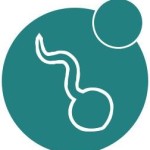 Once they’ve arrived down there, the FSH and LH do two different things. FSH initiates sperm production (important!), while LH kicks off testosterone production (just as important!)
Once they’ve arrived down there, the FSH and LH do two different things. FSH initiates sperm production (important!), while LH kicks off testosterone production (just as important!)
 The actual cells that create the testosterone are called Leydig cells. They work by converting cholesterol into testosterone. That cholesterol literally comes from the bloodstream, which is why a healthy level of T can actually improve your heart health. It’s also the reason eating eggs is so beneficial to testosterone levels!
The actual cells that create the testosterone are called Leydig cells. They work by converting cholesterol into testosterone. That cholesterol literally comes from the bloodstream, which is why a healthy level of T can actually improve your heart health. It’s also the reason eating eggs is so beneficial to testosterone levels!
 During testosterone production, it’s released by the testicles into the bloodstream. Most of the stuff attaches to SHBG and albumin, nullifying its effects. It’s the small amount that remains free that aids our strength, focus, sexual drive, and all the other great benefits of testosterone.
During testosterone production, it’s released by the testicles into the bloodstream. Most of the stuff attaches to SHBG and albumin, nullifying its effects. It’s the small amount that remains free that aids our strength, focus, sexual drive, and all the other great benefits of testosterone.
Here’s a handy chart of the HPA-axis:
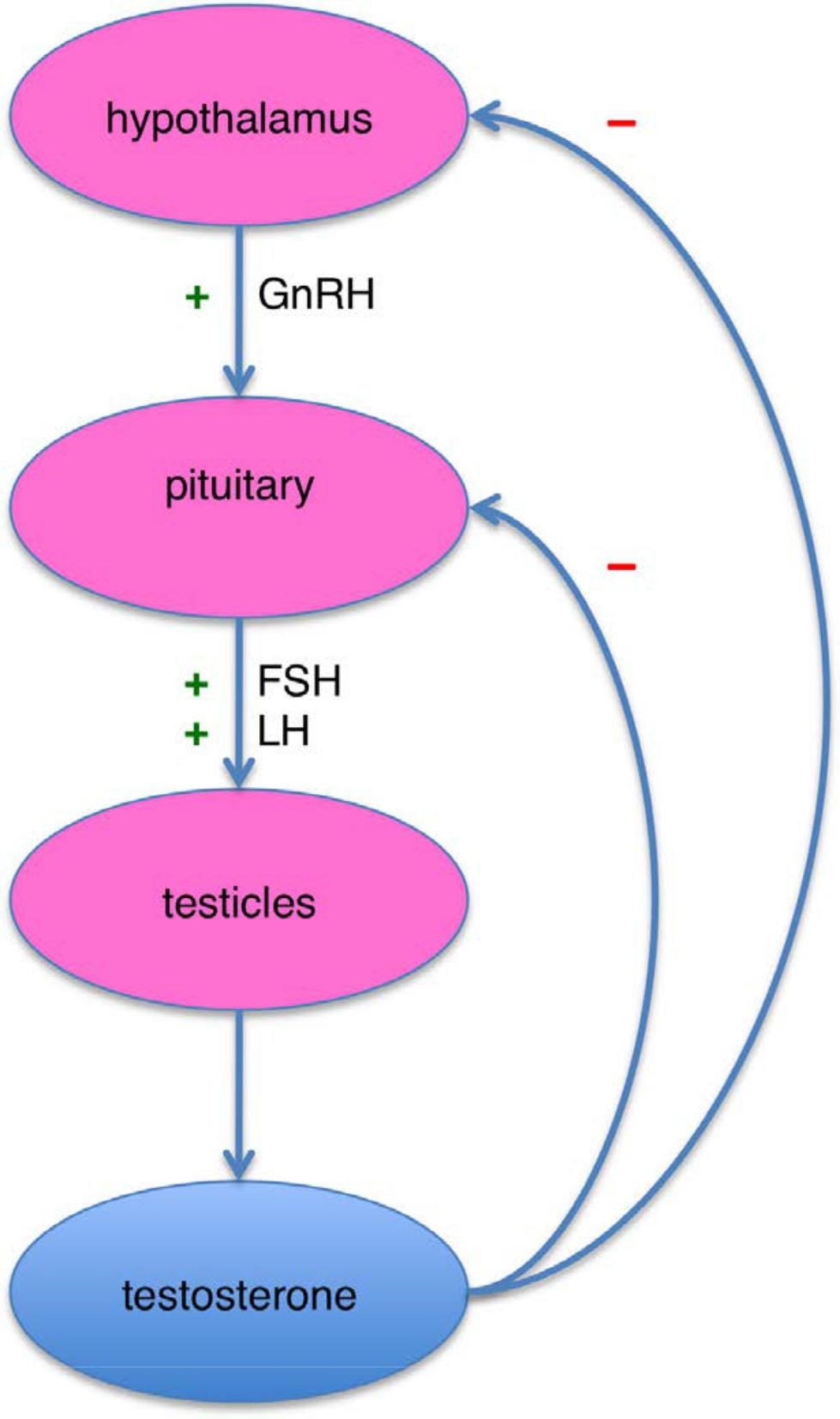
Image source: Wikipedia
In essence, testosterone is a steroid hormone. The changes and benefits it triggers in the body are detailed right over here. The average male human creates 7mg of testosterone per day, but there are actually three different types. Not all of it is usable by the body, or at least not to produce the effects you’re probably looking for.
Hormone Therapeutics aims to help people looking to improve and optimize their health through natural means or through the guidance of our physicians.
Don’t miss out our free weekly tips and news on Low T, hormone balancing, healthy living, nutrition and a lot more.
Want more?

Sign up today and Get our ebook, ‘Naturally Increase Your Testosterone Levels’ absolutely FREE.
Here’s What You Should Know about Testosterone Production
Saleamp Design November 4th, 2016
Posted In: Low T Info
Tags: albumin, biologically available, Follicle Stimulating Hormone, free testosterone, FSH, GnRH, growth hormone, HPA axis, hypothalamus, LH, low t, Luteinizing Hormone, pituitary, sex hormone-binding-globulin, SHBG, testicles, testosterone, testosterone levels, testosterone production
Here’s What You Should Know More about Testosterone Levels
 How Do I know my Testosterone levels?
How Do I know my Testosterone levels?
With all this information on testosterone and the benefits of maintaining proper testosterone levels, you might be wondering about the specific testosterone levels you have seen. What is a normal testosterone levels? How much testosterone are you supposed to have, and how do you find out your current level? Well, it’s a tricky question. Part of the problem is that despite years of efforts and calls for action, hormone testing is still not universally standardized.
There has been positive movement towards a standard set of testing, but we’re not there yet. The other issue is that many doctors don’t agree on just how much testosterone a person, male or female, should have in their bodies. There is a rough “normal range”, but some doctors seem to play a little fast and loose with the low and high ends of the range.
Many doctors and labs don’t take into account factors like age and physical condition, and it means that you might have to do some research on your own or see a specialist to really understand your testosterone situation.
 Flaws in the Accepted Blood Testing System
Flaws in the Accepted Blood Testing System
LabCorp uses a Total Testosterone range of 348 – 1197 ng/dl (nanograms per deciliter). According to this reference range, one man with a 355 ng/dl would be considered normal while his neighbor at 345 ng/dl would be considered to have low testosterone and if they were lucky their health insurance would cover Testosterone Replacement Therapy. Also, a neighbour across the street might have a Total Testosterone level of 1150 ng/dl and he would also be considered normal like the man with a 355 ng/dl. Only a few years ago LabCorp and the insurance companies considered 249 the lower end of normal rather than 348.
The biggest problem comes when age is not factored into the analysis and 355 ng/dl is considered normal whether the patient was 20, 40, 60 or 80?! It also does not matter if the patient was obese, super fit, thin, had a pituitary gland issue or exhibited any of the symptoms of low testosterone?!?!
 This is why having an excellent medical team to assess your blood tests, physical and medical history is critical. We rarely know what our baseline was from age 19 and everyone has their own sweet spot across Testosterone and all of the other hormones.
This is why having an excellent medical team to assess your blood tests, physical and medical history is critical. We rarely know what our baseline was from age 19 and everyone has their own sweet spot across Testosterone and all of the other hormones.
The fact that reference ranges don’t break patients down by age or health status explains why a 30-year-old man can go to his doctor with all of the symptoms of low T, only to be told that his T levels are fine because they’re within the “normal” range. If you’re 30 (or even 50), but have the same testosterone level as an 80-year-old, diabetic man, your doc may say you’re okay, but you’re still not going to feel good. Plain and simple.
Contact Hormone Therapeutics to get blood tested and a Physician evaluation of your results and treatment options!
Reference Ranges for Testosterone Levels in Men
So, in the interests helping you with of self-directed research, here are average testosterone levels for men up to age 54. The figure to pay attention to here is “Mean Total Test”, which is the average level for men of that age. This data is taken from a 1996 study involving hundreds of participants.
If you have your testosterone levels tested and your levels are approximately at the mean level for your age, then you probably don’t suffer from low testosterone.
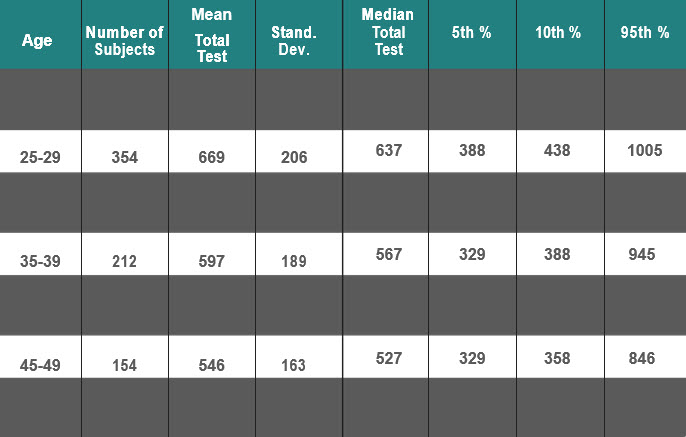
Optimal Testosterone Levels
 Of course, just because you’re not suffering from medically low testosterone doesn’t mean you wouldn’t benefit from more. Those numbers are the average levels only, not the best levels. Research hasn’t determined a hard and fast rule for the optimal levels of testosterone. Some men are fine at the low end of the normal range, while others need to be at the very top to feel their best. What’s normal and what’s optimal?
Of course, just because you’re not suffering from medically low testosterone doesn’t mean you wouldn’t benefit from more. Those numbers are the average levels only, not the best levels. Research hasn’t determined a hard and fast rule for the optimal levels of testosterone. Some men are fine at the low end of the normal range, while others need to be at the very top to feel their best. What’s normal and what’s optimal?
Anecdotal evidence shows that many men start to feel the effects of low testosterone at the 500 ng/dl mark. Although this shouldn’t be taken as gospel, it does seem that staying above 500 ng/dl is a good idea for most men.
Overly high levels of testosterone typically aren’t something people need to worry about. Although there are detrimental effects to having too much testosterone, such as thick blood and sleep apnea, excess testosterone isn’t a common condition. To be sure, it’s highly unlikely that anyone would reach those levels by following the natural and food-based advice listed here.
How to Test Your Testosterone Levels
Contact Hormone Therapeutics for a Free Low T evaluation and if you exhibits symptoms we will set up your comprehensive blood tests. Contact us right now!
Hormone Therapeutics aims to help people looking to improve and optimize their health through natural means or through the guidance of our physicians.
Don’t miss out our free weekly tips and news on Low T, hormone balancing, healthy living, nutrition and a lot more.
Want more?

Sign up today and Get our ebook, ‘Naturally Increase Your Testosterone Levels’ absolutely FREE.
Here’s What You Should Know More about Testosterone Levels
Saleamp Design November 1st, 2016
Posted In: Low T Info
Tags: blood test, blood tests, doctor, free evaluation, free testosterone, growth hormone, HGH, low t, low t doctor, low t physician, low testosterone, normal levels, physical exam, physician, pituitary gland, testosterone, testosterone levels, Total Testosterone
Top 7 Reasons to Naturally Increase Testosterone Levels
 A host of human hormone research studies have demonstrated that, in order to improve health and naturally increase testosterone levels, it must go hand-in-hand.
A host of human hormone research studies have demonstrated that, in order to improve health and naturally increase testosterone levels, it must go hand-in-hand.
The hard part of sifting through all of that complex research is that it’s often difficult to tell the cart from the horse. Health and Testosterone are so closely linked in men that it’s hard to see when low T causes poor health, or when poor health causes low T.
Do we become healthier when we naturally increase testosterone levels, or by making positive lifestyle changes, do our bodies naturally increase testosterone levels? One thing that is clear, though, is that by taking manageable steps to naturally increase your testosterone, you’re putting yourself into a Win/Win situation. These lifestyle choices are just good health advice, and they also increase your T. We have also seen a scientific study of 83,000 US veterans over a 15 year period assessing the benefits of Testosterone Therapy.
This study showed that US veterans with low testosterone, supplemented under Physician guidance back to normal levels have lower incidence of heart attack, stroke, prostate cancer and mortality.
Top 7 Reasons to Naturally Increase Testosterone Levels
Here are our Top Seven reasons to naturally increase testosterone levels that will undoubtedly make you a much happier and healthier Man (increasing testosterone does help with all of the symptoms and issues caused by Low T):
 Increase Muscle Mass and Overall Strength
Increase Muscle Mass and Overall Strength
There is no doubt that an increase in testosterone will positively impact your entire muscular system by increasing crucial muscle protein synthesis that contributes directly to muscular growth. An upgrade for your muscular system, at any and every age, will naturally lead to a healthier, more confident and capable you.
 Increase Overall Heart Health
Increase Overall Heart Health
The heart is the single most important muscle in your body. An increase in testosterone will not, by itself, lead to the prevention of cardiovascular disease, but the direct benefits derived from naturally increasing your Testosterone level will lead directly to more sustainable cardiovascular health if your physician monitors and manages the patients red blood cell count and hematocrit levels.
 Decrease Your Body Fat Percentage
Decrease Your Body Fat Percentage
Every medical study has proven that men suffering from obesity have a consistently lower-than-average testosterone level (and coinciding above-average estrogen levels) and there are clear reasons for this. When our testosterone levels decrease, insulin and glucose regulation decreases accordingly as the body’s natural ability to metabolize fat also declines. Testosterone levels play a crucial role in the body’s insulin and glucose regulation as well as the body’s ability to metabolize fat.
 Fortify Your Skeletal System
Fortify Your Skeletal System
As we age, men can suffer from the debilitating effects of osteoporosis but testosterone is an often overlooked health ingredient that plays a significant factor in overall bone density and strength. Testosterone is a key component in effective bone mineralization and resorption, increasingly important as we age and our bones tend to lose a degree of density.
 Reignite the Libido
Reignite the Libido
The hard fact is that the primary function of testosterone is as a vital reproductive hormone. It returns desire as well as sexual function.
 Cognitive Ability
Cognitive Ability
Testosterone helps regulate cortisone, which is a stress hormone, and affects the efficiency of our brain’s neurotransmitters. When men suffer from decreased testosterone levels they lose some ability to effectively regulate cortisol levels, which can cause neurotransmitters malfunction and lapses in memory.
 Delay, Decrease or Offset Effects of Alzheimer’s
Delay, Decrease or Offset Effects of Alzheimer’s
Alzheimer’s and dementia are most frequent in 65+ men often caused by Andropause. In addition, a healthy testosterone level is a distinct competitive advantage in the game that we call “life”. Feel the way you used to feel and improve your drive, confidence, energy, look, outlook, sexual interest and function while living a healthier life.
Hormone Therapeutics Physician Guided Testosterone Replacement Therapy
 These are all improvements you can achieve through natural means. Natural means will increase testosterone levels, however, they will not always optimize your levels to where you feel the way you used to feel for reasons including hypogonadism, aging, health conditions and more. These are great healthy ways to live your life, however, the expert Hormone and Testosterone physicians at Hormone Therapeutics can put you on a proper Testosterone and Hormone Replacement Therapy program.
These are all improvements you can achieve through natural means. Natural means will increase testosterone levels, however, they will not always optimize your levels to where you feel the way you used to feel for reasons including hypogonadism, aging, health conditions and more. These are great healthy ways to live your life, however, the expert Hormone and Testosterone physicians at Hormone Therapeutics can put you on a proper Testosterone and Hormone Replacement Therapy program.
Hormone Therapeutics will assess your symptoms and complete medical history. We will schedule your complete blood tests. We will interview you and then develop a program specifically for you. We will give you another blood test at the 6-8 week mark of treatment and also a 24 point self-evaluation of the progress against the symptoms of low testosterone.
After further blood testing and evaluation of your progress we can adjust your treatment as needed. The treatment could include supplemental testosterone, HCG to encourage your system to naturally produce more testosterone, estrogen blockers to manage your Estradiol : Total Testosterone ratio and optimize hormone balance. There are also many other factors and tests we can assess and other treatments we can consider depending on your unique situation.
Always start with a natural approach to optimizing your health. Good clean living, a healthy diet, exercise and sleep patterns will go a long way to giving you the life and health you desire. Our Physicians are here to help you.
OPTIMIZE YOUR HEALTH!
Hormone Therapeutics will help you increase testosterone levels the natural way, working with you and getting you back to feeling how you remember feeling went you felt great! Contact us for a free evaluation. www.hormonetherapeutics.com/contact-us/
Hormone Therapeutics aims to help people looking to improve and optimize their health through natural means or through the guidance of our physicians.
Don’t miss out our free weekly tips and news on Low T, hormone balancing, healthy living, nutrition and a lot more.
Want more? 
Sign up today and Get our ebook, ‘Naturally Increase Your Testosterone Levels’ absolutely FREE.
Top 7 Reasons to Naturally Increase Testosterone Levels
Saleamp Design October 4th, 2016
Posted In: Low T Info
Tags: benefits of TRT, clean, Cognitive Ability, Decrease or Offset Effects of Alzheimer’s, Decrease Your Body Fat Percentage, Delay, diet, estradiol, Fortify Your Skeletal System, free testosterone, HCG, health, healthy, Increase Muscle Mass and Overall Strength, Increase Overall Heart Health, life, longer, low t, natural, naturally increase testosterone, optimize, physician, Reignite the Libido, testosterone, Testosterone replacement therapy, Total Testosterone
Wondering About Low T? Here are the Low Testosterone Symptoms You Should Know
Do you keep noticing commercials about Low Testosterone symptoms, or Low T, and wonder what exactly they are talking about? Are you wondering if you have Low T? We have yet to meet anyone nearing 40, or older, who sees these commercials and can consistently say I never feel like that with the same pep I did when I was younger.
For healthy men, testosterone peaks at age 19 and goes down about 1-2% a year for the rest of your life. We are living 64% longer today than we were just one century ago and different parts of our body age faster than other. An unbalanced or depleted endocrine system has so many men are suffering from the Low Testosterone symptoms. . . but they don’t have to suffer from what so many people just write-off as normal aging.
What is Testosterone?

Testosterone is a naturally occurring and very potent hormone produced in large amounts by all males (and in much smaller amounts in females). Production begins in the womb and then gradually increases for weeks from birth.
Initially, it fortifies the development of male genitalia, then gradually affects every vital physiological system (muscular, circulatory, skeletal, reproductive, etc.)
After reaching physical maturity, testosterone plays a major role in the healthy development of male sexuality. Testosterone levels drastically surge during the onset of puberty. Levels peak at 19, then level o and begin to drop by the mid-30s, by about 1% per year.
What are the Low Testosterone Symptoms?
Except in cases of hypogonadism (medically low testosterone) when it occurs much earlier, most men begin to feel many of the symptoms of low testosterone by their 40s. It’s one reason why our physical and mental capabilities begin to diminish as we age, and it may even contribute to the following life and relationship altering conditions of Low T:
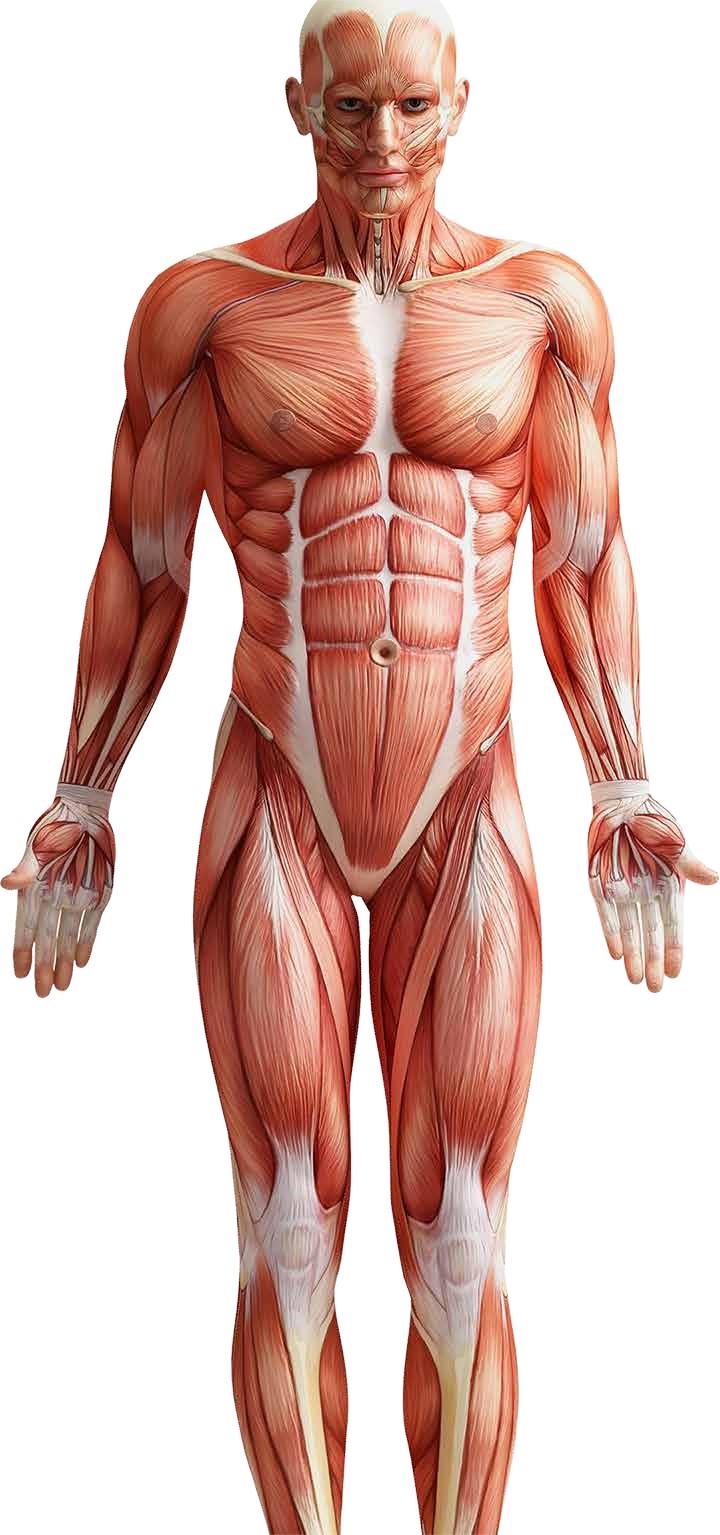
- Loss of Muscular Mass and Strength
- Reduction in Bone Density
- Loss of Skin Elasticity
- Hair Loss/Male Pattern
- Baldness
- Erectile Dysfunction
- Depression
- Fatigue
- Loss of Concentration or Memory
- Weight Gain
- Gynecomastia
- Hot Flashes
- Lower Sex Drive
- Urinary Problems
- Sleep Problems
- Irritability
- Night Sweats
- Hypogonadism
- Adrenal Fatigue
- Thyroid Health
There is a syndrome called Irritable Male Syndrome, or IMS, that’s caused by low testosterone. It is not just having a low libido. This syndrome includes emotional withdrawal, lack of motivation, aggression, personality changes, and anxiety. Irritable Man Syndrome can also present in self-destructive activities including gambling, alcoholism and workaholism.
Sound like you? Low testosterone affects over 13.8 million men in the US. Many of these men are in their 30s and even 20s due to hypogonadism.
Low T effects go beyond sex drive and mood. Testosterone deficiency increases the risk for cardiovascular disease, type 2 diabetes, and bone fractures. Low testosterone increases mortality risk.
800 men were followed for 50 years and the men with the lowest testosterone levels had a 33% greater chance of death, from all causes, than the group with the highest testosterone levels. Another study showed that men with low testosterone had 88% higher mortality levels than men with normal testosterone.
Hormone Therapeutics aims to help people looking to improve and optimize their health through natural means or through the guidance of our physicians.
Don’t miss out our free weekly tips and news on Low T, hormone balancing, healthy living, nutrition and a lot more.
Want more? 
Sign up today and Get our ebook, ‘Naturally Increase Your Testosterone Levels’ absolutely FREE.
Wondering About Low T? Here are the Low Testosterone Symptoms You Should Know
Saleamp Design September 30th, 2016
Posted In: Low T Info
Tags: Adrenal Fatigue, Andropause, Baldness, depression, erectile dysfunction, fatigue, gynecomastia, Hair Loss/Male Pattern, Hot Flashes, hypogonadism, irritability, irritable male syndrome, Loss of Concentration or Memory, Loss of Muscular Mass and Strength, Loss of Skin Elasticity, low t, low testosterone, low testosterone symptoms, Lower Sex Drive, male sexuality, Night Sweats, Reduction in Bone Density, Sleep Problems, testosterone deficiency, Thyroid Health, Urinary Problems, weight gain
Aromatase inhibitor benefits and side effects as part of Testosterone Therapy
Any significant research into TRT will likely also discuss aromatase inhibitor and estrogen management. You will definitely find this on the ‘Bro-Science’ bodybuilding sites focusing on bulking and supraphysiological dosages of testosterone and other anabolic-androgenic steroids that aromatize to estrogen and estradiol.
What is an aromatase inhibitor and what does it do?
Aromatase is the enzyme complex that converts androgens like testosterone into estradiol in men. Weight gain and aging increase the risk for testosterone conversion into estradiol. Estradiol is the “bad estrogen”, responsible for issues including (often) prostate issues, gynocomastia and erectile/libido/hormonal problems. Men find aromotase in their fat cells and as they expand our estradiol will find itself increasing at the same time our testosterone levels dwindle.
An aromatase inhibitors binds to aromatase, disabling it.
Why take an aromatase inhibitor?
AIs will reduce Estradiol levels. Symptoms of high estradiol include gynecomastia (male breast development and enlargement) and edema (fluid retention in the extremities).
Avoid or Reverse Gynecomastia – Estradiol plays a major role in gynocomastia and an AI like Arimidex (anastrozole) – occasionally letrozole is used – is quite effective in managing estradiol levels. The most important thing is to blood test and measure the estradiol levels and look at is on it’s own and as a % of Total Testosterone levels. if a man goes over a total testosterone of about 600 ng/dl, he will very likely need an aromatase inhibitor. The symptoms for elevated estradiol can mimic those for low testosterone, including mood issues, low libido, erectile dysfunction and other estrogenic side effects.

Did you really want to see a before pic?
Clinical research has looked into the use of aromatase inhibitors as an option to testosterone replacement in older men, and to delay bone closure in adolescent boys who are short, to allow them to gain more height.
Is Estradiol important? Role in men of Estradiol:
Since Estradiol is known as a female hormone and elevated levels can cause gynecomastia or edema, many men believe they need to eliminate or suppress it. This is not true, the body produces estrogens in men because we need it.
Estradiol is important in determining bone mineral density in men. Low levels may lead to bone loss and osteoporosis in elderly men. Low estradiol levels increase fat and decrease sex drive and erectile function.
We do not know the optimal estreadiol range but do know that low levels are not good. We also believe taking anastrozole without clinically diagnosed high estradiol levels and symptoms (gynecomastia and edema) can be counterproductive for men on testosterone therapy. Get your advice from a trained HRT/TRT physician and not someone in the gym or a “Bro-science” website.
Potential side effects of Aromatase inhibitors
Aromatase deficiency has been linked to increased insulin resistance, which is a precursor to type 2 diabetes. Animal studies have shown that an absence of aromatase in male rats increases insulin resistance as well as body fat, and “fatty liver” develops. When young, healthy men were given an aromatase inhibitor, they developed slightly increased body fat, particularly within the waist (i.e., intra-abdominal fat). This type of fat is associated with the development of metabolic syndrome, which includes insulin resistance.
Patients with low testosterone should be wary of automatically using aromatase inhibitors, due to a number of potential metabolic effects. For the AAS using bodybuilder, aromatase inhibitors can be necessary to combat aromatization from supraphysiologic testosterone and other AAS dosages. The most important thing is to work under the guidance of a trained HRT/TRT physician and get tested regularly.
Aromatase inhibitor benefits and side effects as part of Testosterone Therapy
Saleamp Design September 13th, 2016
Posted In: Low T Info
Tags: aromatase, benefits to your body, erectile dysfunction, estradiol, estrogen, hormone replacement therapy, hypogonadism, low t, low testosterone, sex drive, testosterone


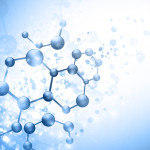 Free Testosterone
Free Testosterone SHBG-Bound Testosterone
SHBG-Bound Testosterone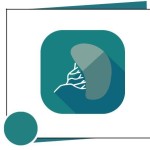 Albumin-Bound Testosterone
Albumin-Bound Testosterone How Do I know my Testosterone levels?
How Do I know my Testosterone levels?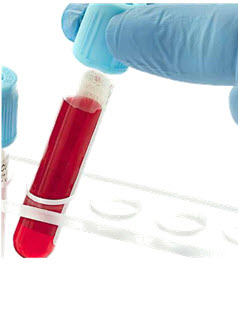 Flaws in the Accepted Blood Testing System
Flaws in the Accepted Blood Testing System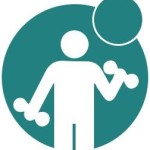 Increase Muscle Mass and Overall Strength
Increase Muscle Mass and Overall Strength Increase Overall Heart Health
Increase Overall Heart Health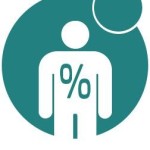 Decrease Your Body Fat Percentage
Decrease Your Body Fat Percentage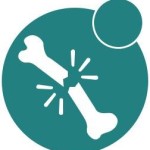 Fortify Your Skeletal System
Fortify Your Skeletal System Reignite the Libido
Reignite the Libido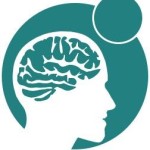 Cognitive Ability
Cognitive Ability Delay, Decrease or Offset Effects of Alzheimer’s
Delay, Decrease or Offset Effects of Alzheimer’s